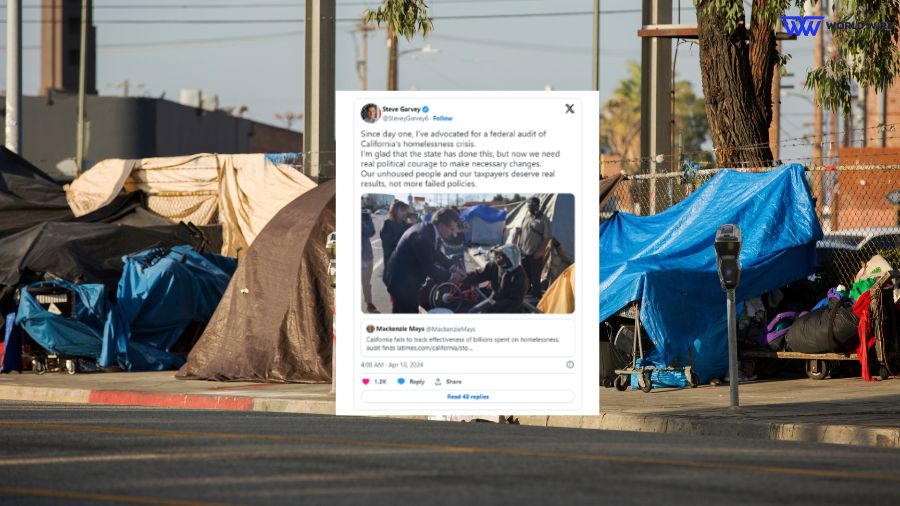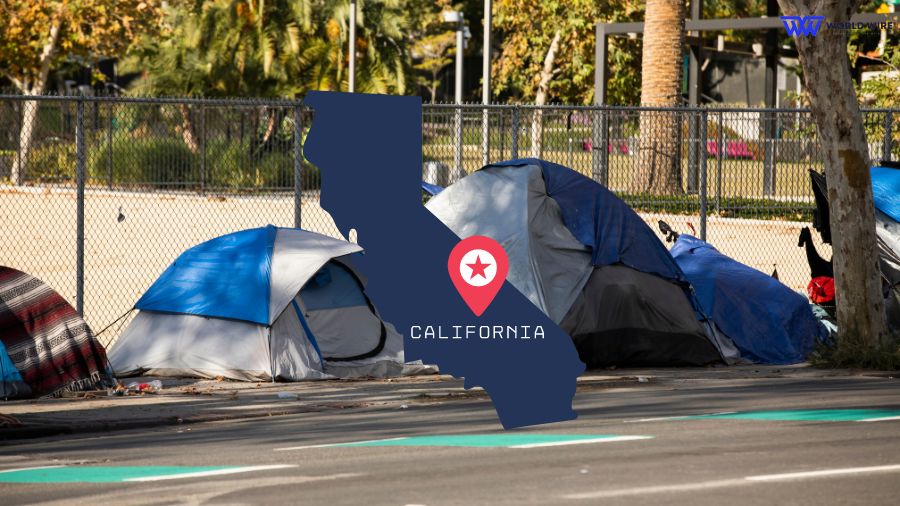A recent state audit has revealed alarming inefficiencies in California’s handling of the homelessness crisis.
Despite spending approximately $24 billion on homeless and housing programs over the last five years, many cities across the state report no significant improvements.
This revelation has sparked a strong reaction from California GOP leaders, who are demanding increased accountability and oversight.
The fiscal year 2018-2023 audit examines the allocations and effectiveness of funds designated to combat homelessness.
It highlights that the California Interagency Council on Homelessness (Cal ICH), which is tasked with coordinating and allocating resources for these programs, ceased tracking their effectiveness in 2021.
The audit criticizes Cal ICH for failing to collect and evaluate outcome data, attributing this lapse to a lack of consistent methodologies.
Assembly Republican Leader James Gallagher was quick to attribute the failures to the current administration. “This is standard Gavin Newsom – make a splashy announcement, waste a bunch of taxpayer money, and completely fail to deliver,” Gallagher stated emphatically.
He continued, expressing the sentiment of many Californians, “Californians are tired of the homeless crisis, and they’re even more tired of Gavin’s excuses. We need results – period, full stop.”
Senator Roger Niello, another Republican, described the audit as “troubling” but that he “wasn’t terribly surprised” in his comments to Fox News Digital.
He expressed concerns about the audit’s focus, noting, “The one issue I had with the audit was that the focus was mostly on housing and shelter issues, which is certainly important, but really very little about actual results, getting people out of homelessness, not just into shelter,” he explained.
“That’s sort of half the job, maybe not even quite half the job. And, so, that was a little bit of a disappointment.”
On the other side of the aisle, Democratic state Sen. Dave Cortese, who requested the audit, echoed the need for a more structured approach.
After touring a large homeless encampment in San Jose, Cortese noted, “The audit highlights the need for improved data and greater transparency at both the state and local levels.”
He complained about the fragmented approach to handling this issue, “Unfortunately, there is a balkanized approach to data collection and outcomes, with no centralized system for tracking our investments.”
Amidst the political responses, former MLB All-Star Steve Garvey, now a Republican candidate in California’s U.S. Senate race, emphasized the necessity for decisive political action.

“Since day one, I’ve advocated for a federal audit of California’s homelessness crisis,” Garvey said. “I’m glad that the state has done this, but now we need real political courage to make necessary changes. Our unhoused people and our taxpayers deserve real results, not more failed policies.”
Despite the critical audit findings, Cal ICH reported that it has made strides in data collection following the enactment of AB 977 on January 1, 2023.
This legislation mandates that grantees of state-funded homelessness programs enter specific data elements about individuals and families into their local Homeless Management Information System (HMIS).
Nevertheless, Cal ICH pointed fingers at local governments, claiming that these municipalities bear the primary responsibility for implementing programs and collecting outcome data.
“The Council continues to improve its ability to ensure that taxpayer dollars are spent judiciously and effectively, including by providing technical support to local jurisdictions to help align data standards and reporting,” Cal ICH asserted in response to the audit.
As the debate intensifies, the focus remains on refining the strategies and enhancing accountability in California’s efforts to manage and alleviate homelessness.
The pressing need for tangible results and a cohesive state strategy is more apparent than ever, as highlighted by the audit and the varied responses it has provoked.







Add Comment